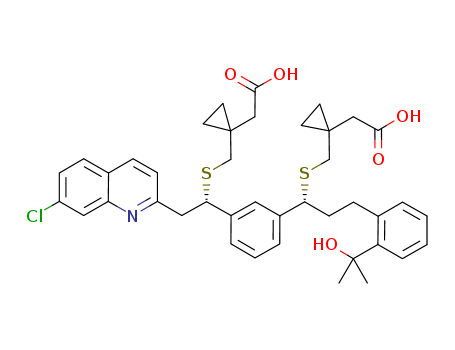Multi-step reaction with 11 steps
1.1: (-)-diisopinocamphenylborane chloride / dichloromethane / -5 - 0 °C
2.1: cerium(III) chloride / tetrahydrofuran / 0 - 5 °C
3.1: dmap; triethylamine / dichloromethane / 0 - 5 °C
4.1: toluene-4-sulfonic acid / dichloromethane / 25 - 30 °C
5.1: water; sodium hydroxide / tetrahydrofuran; methanol / 25 - 30 °C
6.1: hydrogenchloride / water; ethyl acetate / 25 - 30 °C
7.1: N-ethyl-N,N-diisopropylamine / dichloromethane / 25 - 30 °C
7.2: 1 h / 0 - 5 °C
8.1: sodium methylate / methanol; N,N-dimethyl-formamide / 0 - 5 °C
9.1: ethyl acetate / 25 - 30 °C
10.1: sodium methylate / methanol; N,N-dimethyl-formamide / 26 h / 25 - 45 °C
11.1: sulfuric acid; water / 2.5 h / 0 - 10 °C / Inert atmosphere
With
hydrogenchloride; dmap; cerium(III) chloride; sulfuric acid; water; sodium methylate; toluene-4-sulfonic acid; triethylamine; N-ethyl-N,N-diisopropylamine; (-)-diisopinocamphenylborane chloride; sodium hydroxide;
In
tetrahydrofuran; methanol; dichloromethane; water; ethyl acetate; N,N-dimethyl-formamide;
2.1: Grignard reaction;





